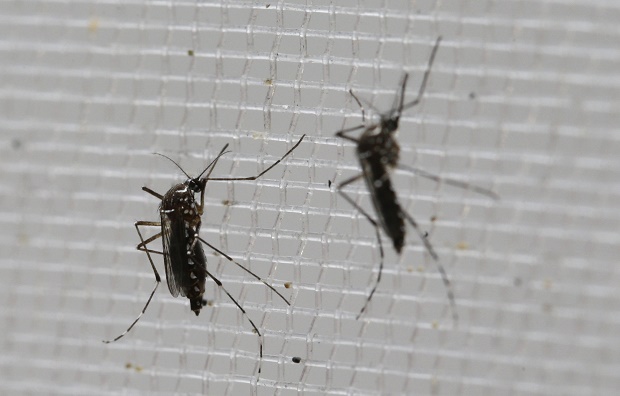
Aedes aegypti mosquitoes to be tested for various diseases perch inside a container at the Gorgas Memorial Laboratory in Panama City, Thursday, Feb. 4, 2016. Panamanian authorities announced on Monday that 50 cases of the Zika virus infection have been detected in Panama’s sparsely populated Guna Yala indigenous area along the Caribbean coast. The Aedes aegypti mosquito is vector for the spread of the Zika virus. AP Photo
PANAMA CITY, Panama—Panama is mulling releasing millions of genetically modified mosquitoes on its territory to combat the spread of the Zika virus, a prominent health official told AFP on Thursday.
The health ministry and a tropical disease research lab, the Gorgas Institute, are evaluating “the viability and feasibility” of repeating and expanding on just such an experiment that took place two years ago, said Israel Cedeno, head of the ministry’s epidemiological unit.
READ: Zika virus said to operate like heat-driven missile
As back then, the idea would be to introduce male Aedes aegypti mosquitoes whose genes had been altered so that their offspring, after mating with bloodsucking females, die at the larva stage.
In 2014, the project, carried out in a town west of Panama’s capital, resulted in a 93 percent decline in the mosquito population in the area.
Cedeno cautioned however that while the results were encouraging “its cost is high.”
Because of that, the government needed to work out if the money would be better spent on genetically tinkering with mosquitoes or boosting public information campaigns to urge eradication of breeding spots for the insects.
READ: WHO declares global emergency over Zika
In Panama there are 50 confirmed cases of Zika infection, all of them in its Caribbean coastal region.
The World Health Organization has said it suspects the virus might be behind a sudden spike in birth defects in a part of northern Brazil.